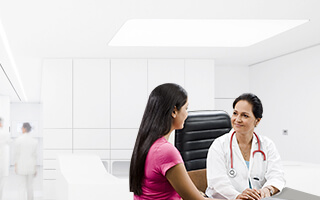Piles or Hemorrhoids Treatment in Dubai
Get Piles treatment in Dubai that is safe and effective at Dr Batra's® UAE clinics.
Piles (or hemorrhoids) are swollen veins in the rectum or anus that can cause pain, itching, or bleeding. At Dr Batra's®, we specialize in treating piles with homeopathic solutions that focus on the root cause, offering you long-term relief.
With over 40 years of experience successfully treating piles and hemorrhoids, our team of skilled doctors provides personalized care that prioritizes your comfort and well-being.
Our treatment is designed to reduce discomfort and inflammation while preventing future occurrences. Whether you're experiencing mild symptoms or more severe complications, our advanced diagnostic methods and natural remedies ensure you receive a treatment plan tailored to your unique needs.
Searching for a piles specialist near you? At Dr Batra's®, we combine expertise, compassion, and cutting-edge care to provide trusted piles treatment in Dubai. Our holistic approach ensures faster healing without invasive procedures.
Your health is our priority. Schedule your consultation with a hemorrhoids doctor in Dubai today and take the first step towards a pain-free life.
Why Choose Dr Batra's® for Hemorrhoids Treatment in UAE?
1. Global Network of Qualified Homeopathic Doctors
At Dr Batra's®, we take pride in having one of the largest networks of homeopathic doctors globally, with over 350 practitioners worldwide.
Our doctors are medically qualified, having completed a rigorous 5.5-year degree program in homeopathy, which includes training in medicine, gynecology, anatomy, physiology, and psychology.
Additionally, we have over 45 specialists with an M.D. in Homeopathy, ensuring you receive expert care rooted in both knowledge and experience.
2. Personalized and Holistic Treatment
Every patient is unique, and so is their treatment plan at Dr Batra's®. Our holistic approach addresses not only the physical symptoms of hemorrhoids but also the underlying emotional and psychological factors that may contribute to the condition. This ensures a comprehensive and lasting recovery.
3. Seamless Global Care with E-Medical Records
Our advanced centralized medical record system allows patients to consult with our doctors at any of our clinics worldwide. With easy access to past treatment records, cross-referencing becomes quicker, enabling more accurate diagnoses and better treatment outcomes based on our extensive experience.
Get Piles Treatment at Conveniently Located Clinics in Dubai & Abu Dhabi
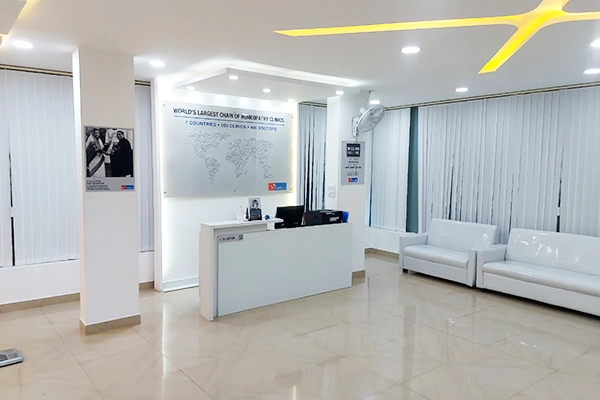
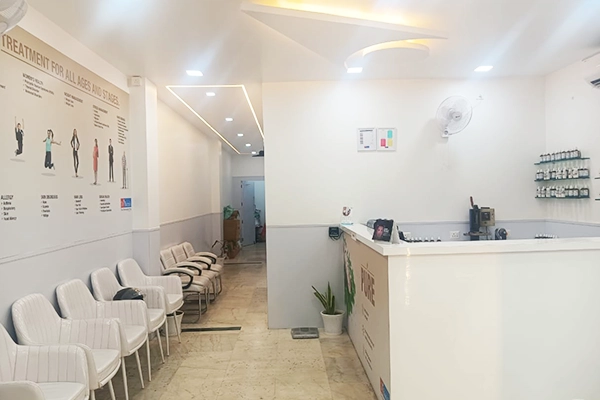
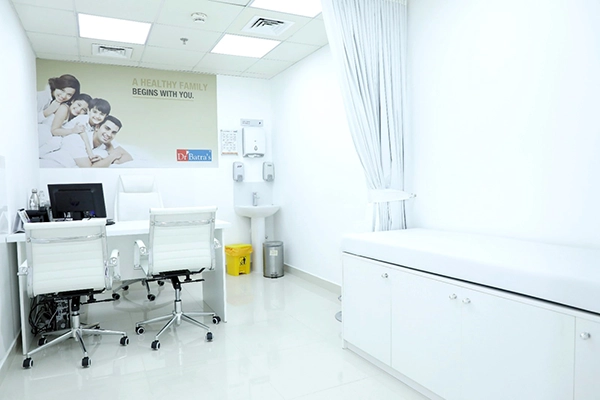
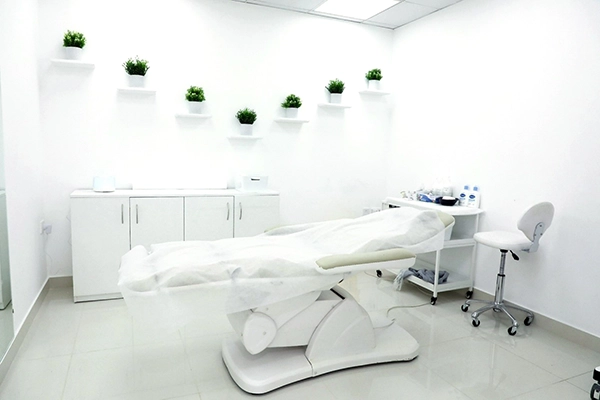
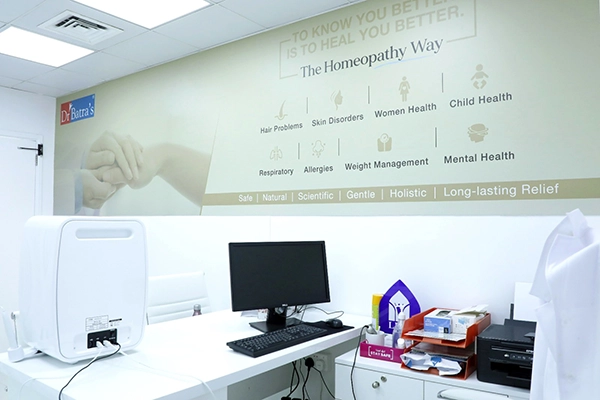
Treatment Approach for Hemorrhoids at Dr Batra’s®
Step 1: First Consultation – Our homeopaths will spend 30-45 minutes with you to understand the exact cause of piles. We will take into account your everyday habits, lifestyle, and family history of piles. Depending on all these factors, our homeopaths suggest customized homeopathic treatment for piles that will help you cope with it.
Step 2: Medical Diagnosis – Our homeopaths will do a physical examination to evaluate the stage of piles. They may ask questions related to your lifestyle, food habits, and family history of piles.
Step 3: Personalized Treatment - Natural homeopathic medicines are suggested based on the diagnosis made and extent of the condition.
Causes of Piles
The most common causes of piles are:
- Medical causes
- Prolonged constipation
- Prolonged coughing, sneezing
- Prolonged diarrhoea
- Lifestyle
- Sedentary lifestyle
- Low-fibre diet
- Genetics
- Cases of piles may be running in the family.
Risk Factors and Contributors for Piles or Hemorrhoids
Some other factors that increase the risk of developing haemorrhoids include the following:
- Age: with advanced age, the veins become lax
- Being overweight or obese
- Pregnancy: due to pregnancy, there is an increased strain over the pelvic blood vessels, causing them to enlarge
Some of the most common contributing factors are:
- Spicy food
- Smoking
- High blood pressure
- Strenuous exercise
- Prolonged sitting or travelling
- Less fluid intake
Symptoms of Hemorrhoids
Hemorrhoids can cause a range of uncomfortable symptoms, including:
- Painless bleeding during bowel movements: You may notice a few drops of blood on toilet paper or in the toilet bowl after passing stools.
- Pain or discomfort in the rectum: This discomfort often occurs after passing stools, making it difficult to sit comfortably.
- Incomplete bowel movements: A persistent feeling that your bowel movement was incomplete or unsatisfactory.
- Painful lumps near the anus: Hemorrhoids can result in hard, tender lumps around the anus, which may cause additional discomfort.
- Mucus discharge: Mucus may be present with stools.
- Redness and soreness: The area around the anus may become red, sore, and irritated.
Nearly 70% people suffer from Hemorrhoids experience the following symptoms as well:
- A burning sensation in the anal area
- Itching around the anus
- Mild constipation
- A persistent feeling of heaviness in the anus
- Unsatisfactory bowel movements
Stages of Internal Piles
Internal piles are classified into four grades based on the extent of their development:
- Grade 1: Small invisible varicose veins tend to bleed easily, but the amount of blood loss is minimal.
- Grade 2: The veins are visible only while passing stools, but go back inside on their own afterwards.
- Grade 3: Referred to as 'prolapsed haemorrhoids'; these are visibly hanging out, but can be pushed back inside the anus.
- Grade 4: Haemorrhoids stay out of the body and cannot be pushed back.
External Piles
External piles, also known as external hemorrhoids, form beneath the skin around the outer edge of the anus. Unlike internal piles, which are typically painless in the early stages, external piles are often associated with noticeable discomfort and irritation.
They appear as swollen, tender lumps or bumps near the anal area and can cause significant distress, especially during activities like sitting, walking, or bowel movements.
One of the most common complications of external piles is the formation of a thrombosed hemorrhoid, where a blood clot develops inside the swollen vein.
This can lead to intense pain, swelling, and sometimes a bluish or purplish discoloration of the lump. In such cases, medical attention is crucial to alleviate pain and prevent further complications.
When to seek medical advice for Hemorrhoids
While Hemorrhoids can improve with home care, you must consider consulting a healthcare provider if:
- You experience rectal bleeding, especially if persistent or heavy
- Hemorrhoid discomfort continues beyond a week of home treatment
- A lump doesn't reduce after a few days
- You have severe pain or swelling
- Prolapsed hemorrhoids cannot be pushed back
- You notice changes in bowel habits or stool appearance
Remember, rectal bleeding can sometimes indicate more serious conditions, so it's crucial to get an accurate diagnosis from a healthcare professional. Don't hesitate to consult a doctor if you're concerned about your symptoms.
How is Piles Diagnosed?
Piles can be diagnosed through the following:
- Clinical history and examination of the patient
- Nutritional assessment
- Investigations to confirm and rule out other diseases
- Physical examination to evaluate the stage of piles
FAQs
What are the early signs of piles that I should watch out for?
Early signs include painless rectal bleeding, itching, and discomfort in the anal area during or after bowel movements.
Can piles go away on their own without treatment?
In some cases, mild piles may resolve with lifestyle changes like a high-fiber diet and increased water intake. However, persistent or severe cases require medical intervention.
How does homeopathy differ from conventional treatments for piles?
Homeopathy addresses the root cause of piles, providing long-term relief by improving overall health and immunity, without invasive procedures or side effects.
Is homeopathic treatment safe for pregnant women with piles?
Yes, homeopathic treatments are natural and safe, making them suitable for pregnant women experiencing piles due to hormonal changes or increased pressure on pelvic veins.
Are there any lifestyle changes I can make to complement my treatment for piles?
Yes, incorporating a high-fiber diet, drinking plenty of water, avoiding straining during bowel movements, and staying active can complement your treatment and prevent recurrence.
Can piles lead to complications if left untreated?
Yes, untreated piles can lead to complications like severe pain, persistent bleeding, thrombosis (clots), infections, or anemia in rare cases.
How long does it take for homeopathic treatment to show results for piles?
The duration of treatment varies depending on the severity and stage of piles, but many patients notice improvement within a few weeks of starting homeopathic care.
Can children develop piles, and how are they treated?
Yes, children can develop piles due to chronic constipation or straining. Homeopathy offers gentle and effective solutions tailored to children's needs.
What is the difference between fissures, fistulas, and piles?
Fissures are small tears in the anal lining, fistulas are abnormal connections between the anal canal and skin, while piles are swollen veins in the rectum or anus. A proper diagnosis is essential to differentiate these conditions.
Are there any non-invasive ways to manage pain and discomfort from piles?
Yes, using warm sitz baths, applying soothing ointments, and making dietary changes can help manage symptoms alongside medical treatment.



